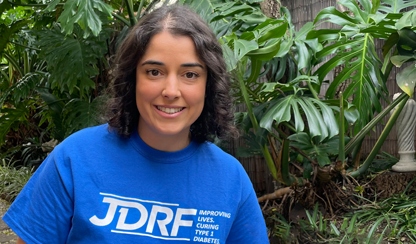
A predictive control algorithm operated via an Android smartphone which acts as an artificial pancreas system could be the key to eliminating manual insulin dosing and improving glycaemic control for adults with type 1 diabetes.
Baker Heart and Diabetes Institute researchers alongside New Zealand collaborators will trial the open-source app, AndroidAPS, thanks to funding from the Juvenile Diabetes Research Foundation (JDRF).
This study comes amid a growing movement of DIY closed-loop technology and was developed by computer scientists and software developers who live with type 1 diabetes or have family members with it. The algorithm is housed on a mobile phone which communicates with a glucose monitor and insulin pump.
The AndroidAPS system has the capability to administer discrete amounts of insulin every five minutes based on glucose response.
Diabetes clinician and researcher, Associate Professor Neale Cohen says there is a need for safety and efficacy data using this advanced algorithm, with a six-month randomised multi-centre trial set to get underway in Australia and New Zealand.
A/Prof Cohen says initial studies have shown safety and improved glycaemic control both in real-world and clinical trial settings, but he says there is a need to investigate the advanced features of this system. In this trial, we will investigate the safety and benefits of a fully closedloop, or completely automated insulin delivery system requiring no input or decision-making from participants.
The study will involve 75 adults with established type 1 diabetes who use either multiple daily injections or insulin pump therapy.
A/Prof Cohen says the technology, if found to be safe and efficacious through robust trials, could provide significant improvements in a person's quality of life by removing the stress of self-management, which we know in itself can impact blood sugar levels.
Type 1 diabetes is a complex chronic condition which involves skilled management of lifestyle, diet and insulin dosing, with self-management estimated to require around 180 decisions per day.
"We can't underestimate the burden that managing diabetes places on individuals and their families and it is critical that we provide as much support as possible to support good management."
About type 1 diabetes
Type 1 diabetes is an autoimmune condition in which the immune system is activated to destroy the cells in the pancreas which produce insulin. We do not know what causes this autoimmune reaction. Type 1 diabetes is not linked to modifiable lifestyle factors.
According to Diabetes Australia, more than 130,000 Australians are living with type 1 diabetes. (see source)
The onset of type 1 diabetes occurs most frequently in people under 30 years however you can develop type 1 diabetes at any age. About 10 per cent of all cases of diabetes are type 1. (see source)
However, concerning data by the International Diabetes Federation released in 2021 found Australia featured in the top ten countries globally for the highest incidence of adult-onset type 1 diabetes. (see source)
Type 1 diabetes is a complex chronic condition which involves skilled management of lifestyle, diet and insulin dosing with self-management estimated to require around 180 decisions per day. This is known to lead to diabetes distress and burnout in many patients, which may contribute to poor quality of life and suboptimal glycaemic outcomes.






